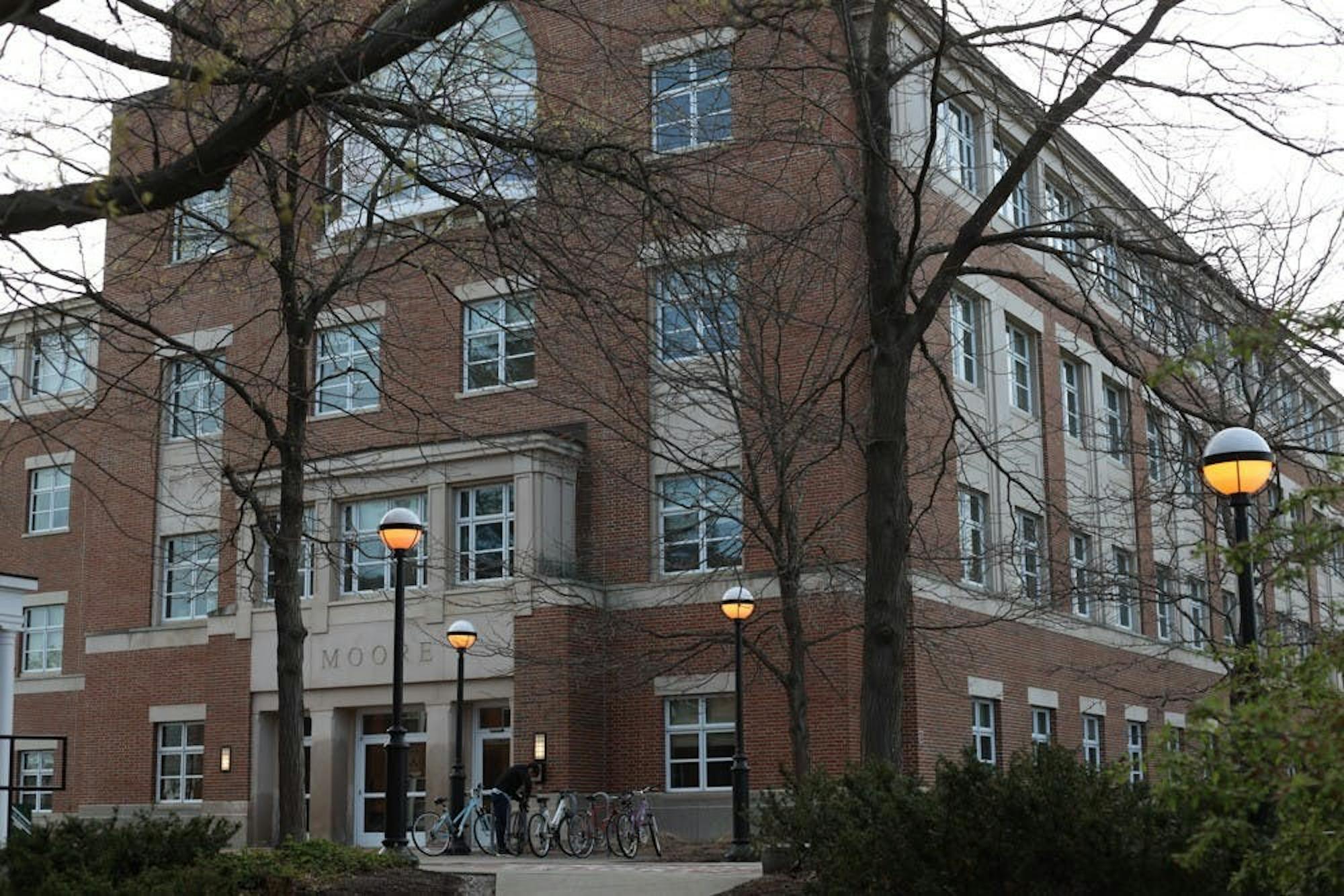On Feb. 26, the Dartmouth Political Union hosted former CNN political commentator Keith Boykin ’87 and American Enterprise Institute fellow and educator Ian Rowe for a debate on the merits of diversity, equity and inclusion policies. Boykin argued in favor of DEI, while Rowe argued against it.
In recent weeks, President Donald Trump’s administration has taken aim at diversity initiatives throughout the federal government, heating up discussions around DEI. For example, Trump signed executive orders during his first eight days in office that removed DEI requirements from the military and suspended federal offices and jobs related to DEI, according to Reuters.
The debate was moderated by DPU ambassador Alexander Barrow ’27 and membership director Margaret de la Fuente ’27. According to Office of Communications senior producer Daniel Maxwell Crosby ’02, approximately 60 people attended the event in Filene Auditorium, while an additional 20 watched online.
The two speakers primarily clashed on DEI’s purpose and whether it effectively rectifies racial disparities.
During his opening remarks, Rowe described the “four false pillars of DEI” that he believes explain “why DEI policies have not generally worked.” The first false pillar is that America is a “fundamentally racist or oppressive nation,” he said. The second is that DEI “operates” on the “identity-group level,” rather than the “individual,” and therefore carries “stereotypes of oppressor versus oppressed.” The third is a tendency among DEI supporters to attribute “disparities in outcomes” to “discrimination within that group” and ignore other factors. Finally, DEI wrongly places emphasis on “equality of outcomes at the group level,” rather than “equality of opportunity at the individual level,” Rowe argued.
Boykin, in his opening remarks, argued that the meaning of DEI has been “twisted” by its opponents. Rather than being about “treating people differently” based on their race, DEI is about “giving people equal access who haven’t been included,” he added.
“Diversity is about having … people with different types of backgrounds,” Boykin said. “Equity is about making sure that there is fairness, and inclusion is about making people feel welcome. That’s all it is.”
Boykin later argued that he believed conservatives had created a belief that DEI is about hiring “unqualified women and people of color” because that is what they do, and they “think [that is] what everyone else is doing.”
“Trump talks about meritocracy, [but] he’s one of the least meritocratic people in government in any administration in history,” Boykin added. “Pete Hegseth [is] a former Fox News host, and now he’s the Secretary of Defense … replacing a Black four-star general.”
Barrow then asked both speakers whether systemic racism exists in the United States and, if so, whether DEI policies are “an effective way to address it.”
Speaking first, Boykin said he believes racism is a “core part of who we are as a country” — noting that no Democratic presidential candidate had won the majority of white voters since President Lyndon B. Johnson signed the Civil Rights Act in 1964. DEI policies, he argued, prevent Americans from “pretend[ing] that the reality [of racism in America] doesn’t exist.”
Rowe said he believed American history is “marked” by racism while cautioning that DEI policies are ineffective because they ignore “forces beyond race.” Drawing on his 15 years of experience running a system of New York City charter schools, Rowe acknowledged the disparity in reading levels between Black and white children but emphasized that there has “never” been a year in which a majority of white students in the United States are reading at grade level.
“Even if we achieve this idea of closing the racial achievement gap in reading between Black and white, all we would have achieved is universal mediocrity,” he said.
As the conversation shifted to educational policy, Rowe stressed that allowing kids to “go to the school that their family thought the best for them” — such as charter schools — can help “break the cycle of disadvantage.” DEI advocates, however, “stand in the way” of allowing parents the “ability to choose the right school for their child,” he argued.
Boykin responded that while he was “aware of what charter schools do,” he was concerned that the expansion of their voucher programs may take funds away from public schools.
“The problem I have [with charter schools] is with taking funding out of the everyday public schools in order to facilitate the charter schools,” Boykin said. “If you could make the charter schools and the public schools equally funded [and] equally resourced, … I’d support that.”
Rowe responded that “charter schools are public schools,” adding that they “receive 70-80% per pupil relative to [the funding for] traditional district schools.”
In an interview after the event, audience member Nico D’Orazio ’28 said he was “intrigued” by Rowe’s focus on education and charter schools. D’Orazio highlighted a DEI program that “trains [people of color] to be teachers … and brings them back into the school system.”
“That’s how you get talent in schools, and that is a DEI policy, one which is being cut by Trump’s Department of Education,” D’Orazio said.
Axel Schulz ’28, who also attended the event, said he believed the debate was well done because both speakers were “impassioned.”
“[Rowe and Boykin] definitely had competing ideas, but it was also respectful, and I thought both candidates were well prepared,” he said.




